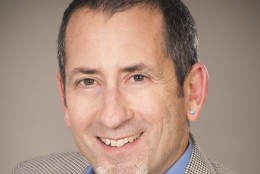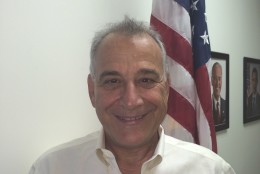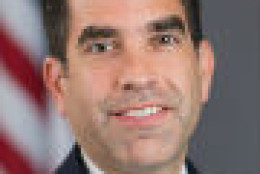Centers for Medicare and Medicaid Services
-
Most of the increase in the government's improper payments during 2015 comes from a higher rate of payment errors in the Medicaid program.
February 26, 2016 -
Reported improper payments are likely to increase as agencies improve their ability to ferret out overpayments and underpayments
February 25, 2016 -
Indiana avoided $80 million in what the feds would call improper payments, and now the crooked filers are moving on.
February 04, 2016 -
At the Health and Human Services Department, chief information officers are so concerned with operating IT networks that they skimp on cybersecurity, according to report by the House Committee on Energy and Commerce. It says chief information security officers should report to agencies' top lawyers.
August 07, 2015 The Centers for Medicare and Medicaid Services has had only partial success stopping fraudulent doctors and suppliers from signing up to receive payments. Billions of dollars are at stake. That's according to a new report from the Government Accountability Office. Two of CMS' screening procedures work well, but GAO found major weaknesses in two others. Seto Bagdoyan is director of the Forensic Audits and Investigative Service at GAO. He joined Tom Temin on the Federal Drive with more on the report.
July 27, 2015-
The Centers for Medicare and Medicaid Services claims its Fraud Prevention System did its job last year, saving $454 million in improper and fraudulent payments to medical providers. But the Inspector General at Health and Human Services, CMS' parent department, isn't so sure. It says a more realistic estimate is about one third of that, or closer to $133 million. Richard Navarro is the audit manager in Health and Human Services' Office of Inspector General. He joined Tom Temin on the Federal Drive to explain this discrepancy.
July 23, 2015 -
As more and more agencies hire chief data officers, the question arises, what’s the difference between data and information? And where does the chief information officer fit into the discussion? In the first part of our special report, Deconstructing the CDO, federal CIOs and CDOs agree there is room for both as agencies mature their use and understanding of data.
July 07, 2015 -
By STEPHEN OHLEMACHER Associated Press WASHINGTON (AP) — Federal agencies set a new record for improper payments last year, shelling out $125 billion in questionable benefits after years of declines. The payments included tax credits…
March 17, 2015 -
For more than 20 years, a driving principle behind federal procurement is a simple one: To the extent possible, the government should buy regular commercial items under regular commercial terms and conditions. That idea is enshrined in law and regulation. So when it doesn't happen, companies protest. In a dispute between contractor CGI Federal and the Centers for Medicare and Medicaid Services, the U.S. Court of Appeals reaffirmed that commercial principle. Alan Chvotkin, executive vice president and counsel at the Professional Services Council, joined the Federal Drive with Tom Temin to explain why the ruling is so important.
March 12, 2015 -
Centers for Medicare and Medicaid Services Administrator Marilyn Tavenner announced she will be leaving the agency at the end of February. During her tenure, Tavenner has overseen the roll out of key provisions of the Affordable Care Act.
January 16, 2015 -
The Centers for Medicare and Medicaid wants to change how it delivers and measures Medicaid. It launched the Medicaid Accelerator Program back in July. The goal is to get Medicaid services and payments to its beneficiaries faster than ever before. It's crowdsourcing best practices for payment and services delivery from states and other health providers. Jason McNamara is one of the leaders behind IAP and a senior technical advisor for CMS in the Health and Human Services Department. He spoke with Emily Kopp and Tom Temin on the Federal Drive about how CMS wants to pass its improvements onto the states.
December 02, 2014 -
The Centers for Medicare and Medicaid Services operate websites meant to help Medicare patients navigate the tangled world of health care providers. But the sites often fail at basic tasks. Auditors from the Government Accountability Office found some don't provide enough information to compare prices, while others don't give adequate information about quality of care. Linda Kohn is director of Healthcare Issues at the GAO. She joined Tom Temin on the Federal Drive to share more of what GAO found.
November 25, 2014 -
Administrator Marilyn Tavenner told House Oversight and Government Reform Committee members on Nov. 14 that CMS fixed 22 technical recommendations before open enrollment began. The letter came on the cusp of yet another contentious hearing on the role of former White House CTO Todd Park in overseeing and developing the initially troubled portal.
November 20, 2014 -
Big changes continue at the Securities and Exchange Commission, which is deep into an investigation into whether Centers for Medicare and Medicaid employees leaked information to stock traders. At the same time, the agency is dealing with an uptick in its caseload over the last year to nearly 700 enforcement actions. Some experts say the numbers represent only a partial success because the SEC hasn't launched many blockbuster investigations. Andrew Ceresney, director of enforcement at the SEC, joined Tom Temin on the Federal Drive and explained the agency's priorities.
November 06, 2014 -
Citing cybersecurity concerns, House Science Committee Chairman Lamar Smith (R-Texas) is compelling Park to testify about his role in the development of the health insurance exchange portal.
October 29, 2014










